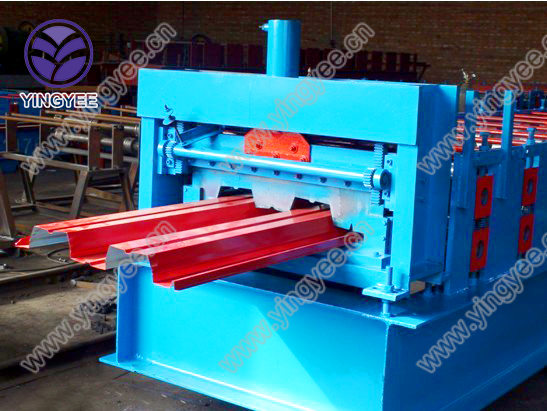
Understanding Metal Rolling Door Cold Forming Machines
In the realm of industrial manufacturing, the demand for efficient, durable, and high-quality products is paramount. One significant advancement in this area is the development of metal rolling door cold forming machines. These machines are technological marvels designed to produce rolling doors that are both sturdy and aesthetically pleasing. This article will explore the functionality, advantages, and applications of these essential machines.
What are Metal Rolling Door Cold Forming Machines?
Metal rolling door cold forming machines are specialized equipment used to manufacture rolling doors from flat metal sheets. The process involves feeding the flat metal into the machine, which then molds it through a series of rollers. These rollers shape the metal into the desired profile and dimensions, resulting in sections or slats that can be assembled into a complete rolling door. The term cold forming signifies that the metal is shaped at room temperature, which enhances the material's strength without compromising its structural integrity.
Process Overview
The process begins with raw metal sheets, often made of steel or aluminum, that are cut to specific lengths. The sheets are then placed into the cold forming machine, which consists of multiple stations—each equipped with rollers that gradually shape the metal. The machine operates continuously, allowing for high-speed production with minimal downtime. Additionally, the use of computerized controls enhances precision in cutting and shaping, ensuring that the final product meets exact specifications.
Advantages of Cold Forming
1. Increased Strength Cold forming enhances the mechanical properties of metal, making the final rolling door stronger and more durable. This is crucial for applications where security and longevity are paramount.
2. Cost-Effectiveness The efficiency of metal rolling door cold forming machines leads to reduced production costs. By minimizing material waste and shortening production time, manufacturers can offer competitive pricing for high-quality products.

3. Customization These machines allow for a high degree of customization. Manufacturers can easily adjust the design and dimensions of rolling doors to meet specific customer requirements, accommodating various architectural styles and functional needs.
4. Consistency and Quality The automated nature of these machines ensures that each product adheres to a consistent quality standard. This reliability is vital for builders and contractors who depend on uniformity for successful installations.
Applications
Metal rolling doors are widely used across various industries and applications. They can be found in commercial settings such as retail stores, warehouses, and parking facilities, providing secure access points that are both functional and visually appealing. In addition to commercial use, rolling doors are also employed in residential applications, particularly in garages and storage areas.
The adaptability of metal rolling doors makes them suitable for various environments. They can be designed to resist harsh weather conditions, providing protection against elements while improving energy efficiency. Furthermore, these doors can be enhanced with insulation, security features, and aesthetic designs to meet a variety of consumer preferences.
Conclusion
In summary, metal rolling door cold forming machines represent a significant innovation in the manufacturing sector. Their ability to produce high-quality, durable, and customizable rolling doors efficiently makes them invaluable to various industries. As technology advances, we can expect further enhancements in cold forming machinery, leading to even greater efficiencies and capabilities. For businesses looking to invest in security and quality, these machines are an outstanding option that meets the demands of modern manufacturing.
In a world where efficiency and durability are essential, understanding and investing in metal rolling door cold forming machines can lead to substantial benefits for manufacturers and end-users alike.